#the book of boba fett meta
Text
The Mandalorian Season 3: The Magician
After passing his trial as the Lover, now wielding the Darksaber, which holds the symbol of Mandalorian leadership and it is powered by a kyber crystal, Din Djarin must harness the Magician to his fullness.

The Book of Boba Fett has set up Din Djarin on a journey to become a positive Magician. He learns more about the Great Purge from the Armorer, and practices using the Darksaber with her. After being ousted by the Tribe, he is told by the Armorer to bathe in the Living Waters beneath the mines of Mandalore, which will be important in the Mandalorian Season 3. He then channels his emotional pain into working on the N-1 starfighter and he lets the droids help him (indicating that he’s letting go of his hatred of droids). Peli Motto plays the role of a guide for Din as she points out that he is always in a hurry and he should slow down. She also helps Din to let go of his desire for a Razor Crest and accepts the newer, better replacement.
Before the premiere of the Mandalorian season 3, I have speculated that Din Djarin won’t become the Mand’alor by the end of the season. This is because the King archetype is the final form, and according to Robert Moore and Douglas Gillette, a good and generative King is also a good Warrior, a positive Magician, and a great Lover. Din has mastered the Warrior and the Lover archetypes, and now he must master the Magician archetype.

The season 3 promotional poster and logo depict Din and Grogu standing behind what seems to be a sunrise and under a sky full of stars. To know the movement of stars and the rising of the sun are specialities of the Magician. The Magician not just know how the physical world works, he also knows how the unseen world works and makes the connection between two worlds. The Magician also acts as a teacher and in this season, Din teaches Grogu how to become a Mandalorian since Grogu chooses to return to him.

Throughout season 3, Din Djarin takes on the role of the positive Magician. As a teacher, he teaches Grogu how to navigate the star system in the Mandalore sector and how to fire darts. In “Chapter 20: The Foundling”, it is revealed that Grogu is rescued by Kelleran Beq, who also takes on the role of the Magician as he is devoted to his students. The Magician is a charismatic talker, and Din takes on this aspect in “Chapter 21: The Pirate”, where he gives a speech that convinces the Mandalorian covert to help Greef Karga to get rid of the pirates on Nevarro. One aspect of the Magician is that he has the ability to deflect one’s arrogance, which is a skill taken up by an advisor to a king or a public official. Din has this skill and he helps Bo-Katan to let her ego down – opening her eyes to her own selfishness and learning to be humble. The Magician also has the ability to expand the mind of themselves and others. Din’s desire to uphold his beliefs helps Bo-Katan to appreciate the spiritual aspects of his belief. The enlightenment she experiences indirectly changes the Armorer, who eventually becomes more lenient towards the helmet rule. This is evident in the season 3 finale, where she does not tell Ragnar to swear to never remove his helmet.
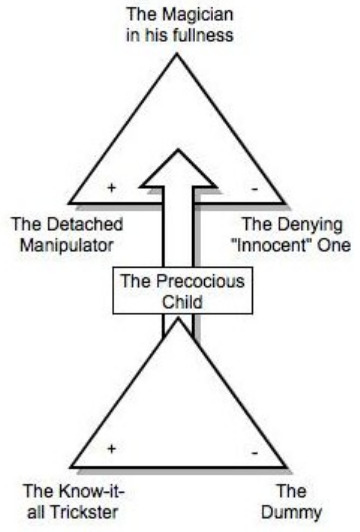
The Magician can take on a bipolar Shadow: The Manipulator and the Denying "Innocent" One. Unlike the Magician who shares information to lift up others, the Manipulator withholds information for their selfish gains. The Manipulator is detached from human values and he uses his knowledge to control and belittle others, or to raise his status and wealth in the expense of others. Moff Gideon is the Manipulator as he exploits the Mandalorian beskar, the cloning technology and the Force to create the next generation of Dark Troopers. He tells Din Djarin to assume that he knows everything, but he withholds information. In true fashion of the Manipulator, Moff Gideon inflates his grandiosity by exploiting the resources to create an army of Force-sensitive clones of himself. This inflation of ego eventually damages himself and others – Moff Gideon engulfs in flames and his clones are destroyed in the end.
On the other hand, the Denying "Innocent" One is a person who wants power and status, but does not want to take on the responsibilities of a true Magician. They only want to learn enough to derail others who are making worthwhile efforts. Elia Kane is the Denying "Innocent" One as she learns the workings of the New Republic Amnesty Program not to help other former Imperial officers to rehabilitate, instead, she derails the efforts Dr. Pershing has done to rehabilitate himself and his cloning technology that can benefit the public. The Denying "Innocent" One also conceals truths to achieve or maintain their status, just like Elia Kane appeases Colonel Tuttle by agreeing his decision to not send help to Nevarro because the pirates that attack Nevarro are sent by Moff Gideon, whom Elia Kane is working under.
In the previous seasons, Din Djarin faces the bipolar shadow of an archetype and learns not to give in. In season 3, Din only faces Moff Gideon, the Manipulator. He does not know of Elia Kane, the Denying "Innocent" One. I find this change of story structure to be quite strange, but I am alright with it. However, I do admit that season 3 is underwhelming. It definitely does not have the same emotional impact as the previous seasons and I am not invested in watching it again. The idea itself is good but the execution is poorly done. I think season 3 should have focused more on the Mandalorian culture and the retake of Mandalore, so that the season 3 finale would feel more emotionally impactful.
So, what is going to happen in season 4?
#the mandalorian#star wars#din djarin#grogu#the mandalorian season 3#the mandalorian season three#the mandalorian analysis#star wars the mandalorian#din djarin and grogu#the book of boba fett#tbobf#sw the mandalorian#sw tbobf#king warrior magician lover#archetypal psychology#archetypes#the mandalorian meta#the book of boba fett meta#tbobf meta
3 notes
·
View notes
Text
So I've been thinking about how the Armorer didn't demand Din to give over his armor once she declared him no longer Mandalorian.
Is it because he earned the beskar by his own labor? Probably not, since Din didn't hesitate to demand that Cobb Vanth give him Boba Fett's armor when he found out Vanth was not a Mandalorian. The means by which Vanth acquired it was irrelevant.
Is it because she believed Din would fight to keep it? I doubt it. We've seen how Din is dutiful, obedient to her leadership, and always stays within the bounds of his rank in the Tribe. He has never shown any sign of a desire to challenge her--always accepting her word as final. If she had asked for the armor, I'm sure he would have readily handed it over. Besides, if Din really did challenge her to a duel, I'm positive she would win; she gives off the "I taught him everything he knows" vibe.
So then what could be the reason she lets him go with the beskar?
My guess is that even though "all the mines have been destroyed", she has confidence that Din will desire to and somehow be able to find those living waters on Mandalore and bathe in them to atone for breaking the Creed. She knows his character and personality. She's aware of how dutiful and just he is--look at his entire arc of trying to return Grogu because she told him to! He cares deeply about adhering to the Creed, so it's probably obvious to her that his decision to remove his helmet was not made lightly. She trusts that he will do everything in his power to carry out his next mission, and should he fail, that he will return to her of his own accord to relinquish the beskar.
With that in mind, I'm wondering if she knows something about Mandalore that she's not telling Din. Maybe she knows of some way of accessing that water.
And right now I just had another thought--what if there really is nothing there and she knows it, but is sending him on this mission as a way to test his suitability for the throne of Mandalore? Maybe there's something there...
Of course, this is all presupposing that the show writers deliberately intended for the Armorer to allow Din to take the armor without any complaint. They could very well have forgotten about how weird that is, but hopefully we'll see some answers in season 3!
#din djarin meta#mandalorian season 3 speculation#the mandalorian meta#the mandalorian speculation#reyna's ramblings#tbobf meta#the book of boba fett meta#din meta#mandalorian season 3
3 notes
·
View notes
Text
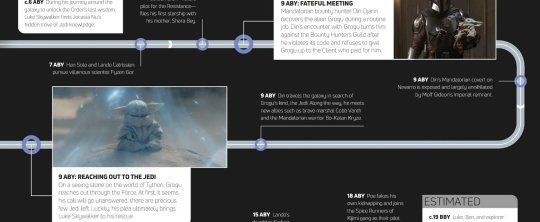

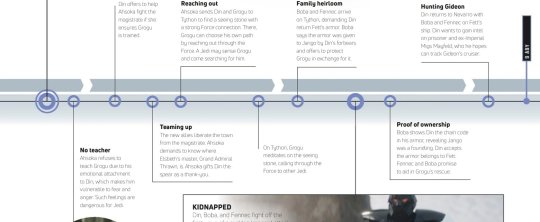
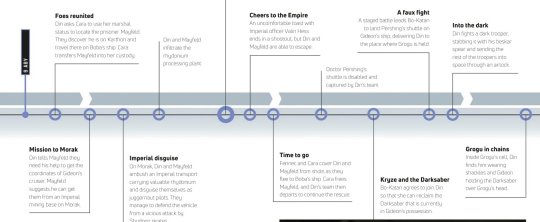
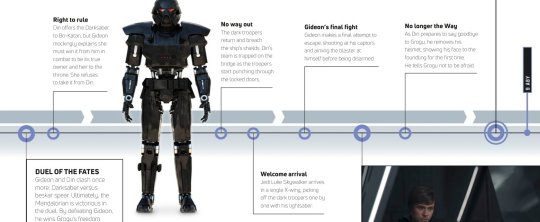



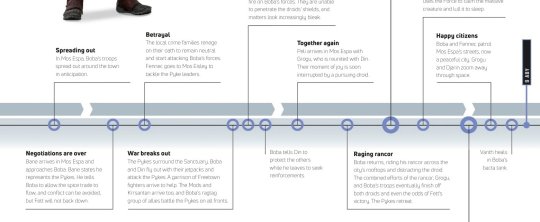
According to Star Wars: Timelines, The Mandalorian season 1, season 2, and The Book of Boba Fett all took place IN THE SAME YEAR. No word on when season 3 is set, this book was apparently written before that came out, but if it also took place in 9 ABY, I'm gonna lose my shit.
#lumi.txt#star wars#the mandalorian#the book of boba fett#din djarin#grogu#din grogu#boba fett#meta#novels#novels: star wars: timelines#timeline
179 notes
·
View notes
Note
I saw your tags on your Luke Skywalker post and you’re 100% right that he made the right choice in TBOBF!! I was totally astounded by how many people were angry at him in this show and believe it ‘ruined his character’. And for what? Letting Grogu choose his own fate? He was probably the only person in the entire Mando series to give him the ability to have a say in his own life. Ugh, I swear these people just don’t even like Luke’s character. Sorry for dumping this vent on you, I just saw your post and I’m glad someone else agrees with me <3
Thank you!! More stuff to fanatically rant about cause I have THOUGHTS. This and what he did to Kylo are stuff I’m biting at the bit to defend.
Now, ok, I can agree the execution of it was not the best. They cut corners because they used too much money in his face rather than giving us a new actor so we could have more screen time. Had they given Luke more screen time for that final scene to be longer it would’ve been better. Disney is still not treating Luke right by any means and I just wanna grab him and wrap him up in a blanket and publish my own book on him.
That being said…
Luke was in the right. No, he wasn’t saying Grogu shouldn’t love his father. Again (and again and again) attachment is NOT relationships of any kind. It’s NOT love. How people still feel like that’s what Luke and the Jedi meant boggles my mind. Attachment is possessiveness and the lie of love. It’s a poison. Grogu had some of that and it was shown in season 1 when he tried to choke Cara out. He’s a toddler with power that can corrupt if not carefully guided.
Luke asked Grogu to unlock his memories and Grogu consented. Luke asked Grogu to choose the Jedi life now (and with his age may not ever see his father again; cause Din himself wasn’t coming back thanks to AHSOKA not Luke—funny how only he’s blamed when he clearly gave Din coordinates) or go back to his father now able to defend himself and Grogu thought about the choice and accepted what it could mean thanks to Luke’s guidance.
Honestly, with Luke’s affinity for love and his past with his father, I could’ve seen him urge Grogu to go back to Din (and maybe he did we just didn’t get to see it, friggen Disney) if not for the fact Grogu needs to learn to make hard decisions. He knows he has Luke and knows he has Din no matter what but he needs to learn to face the anxiety and consequences in the galaxy he’s living in.
You are 100% in how much freedom and respect Luke gives Grogu (is it maybe too much for what is about a toddler+? Maybe! Positives can turn to negatives in teaching and parenting and no one is perfect—-including Din) and is the one who really gives him back his inner strength and confidence.
Luke had Grogu for what? Two or three years? (SW really needs to work on providing us clear time jumps)The two were close. They clearly cared for each other. Luke let Grogu go after the choice was made. Grogu learned from that. He saw Luke be selfless and let him decide his path, even if it may keep them apart but there is the hope they will find each other again (IT SHOULD! God I want coparenting Dinluke). Luke is not turning his back to Grogu. Grogu can reach out and/or return at any time and Luke will answer.
So yes, Luke was right.
#star wars#luke skywalker#the mandalorian#book of boba fett#dinluke#I will stand on this hill#Luke is a good hearted character#he has flaws#but he was right#and it’s hard to include him sending Grogu off on his own and not go meta#cause that was clearly done cause they ran out of money#this and him towards Kylo I will defend#Luke Skywalker defense squad
32 notes
·
View notes
Text
So, I've been holding onto this for a while. And I just had to let it out because I haven't really seen someone with this take yet (but if there is, PLEASE point me out to them!!). People's reaction to Din's name order reveal in that last episode baffled me a lot, because the fans didn't seems to like it all that much (and some seemed to outright hate it). But I actually LOVED IT and I think it brings out some of the themes of identity and what it means for Din in particular and for his covert in general.
Right out of the gate I will say: I don't really think that this was planned from the beginning. Yes, I think that most probably Din's name started as Din and and his surname Djarin, until someone somewhere had the idea to change it up for that last episode. Though I wouldn't put it past the producers to have had that idea from the begining, as there are some pretty involved individuals on the creative team that like to make lore that never makes it to Canon.
But, though I don't think it was planned from the beginning, I don't think that this reveal (and I will call it a reveal, because I think it was meant to be one) loses all that much by not being planned from season one. Ideas progress, and I don't doubt that they were doing it a season at a time, finding new ways to explore Din's identity when confronted with the various occurrences throughout the episodes.
Having said that, I will explain why I think it's genius. And I totally understand if people don't necessarily agree.
Din's anonymity is a big part of his character, and I always loved how the show did its best to first: actively hide his face and name; and second: when revealed, do its best to not remind us of his face and name or use it unnecessarily.
I don't really need to explain that first part, you guys saw the show. We don't know his name until almost the end of season one, and that is the same for his face. His face is only shown when we have confirmation that a sentient (if you consider a Droid a sentient, BECAUSE I DO) sees his face. That is a big step and this reveal will mark Din because this is a first step on the big list of technicalities in which he "breaks" his code. The second being when he wears the imperial soldier helmet.
Every moment he breaks his rule of anonymity, there's weight.
But the second part is the one I'm gonna focus on: the show actively tries to not remind us of his identity. Even after the reveal of the face, we don't get free scenes of him alone without his helmet. Though I will admit that the show uses his name casually a lot, I will also point out that is kinda hard to not use it when he's with other mandalorians (how to distinguish that the Armorer is speaking about him or about Paz in scenes? Etc). And I will forgive when people that are not mandalorian use his name after they learn it. (Like that scene in BOBF when Fennec just announces to a group of mercenaries his name). But the fact that people seem weirded out by Fennec announcing his name like that is proof of how they don't use it unless necessary. I even had a friend point out to me that in the subtitles (at least for S2, dont remenber for S3) they chose to use [The Mandalorian] instead of [Din Djarin] when hes talking offscreen. Even the spelling was very uncertain in the begining, you can still find posts and fanfics written with "Dyn Jarreen" or other variants.
Though his helmet and his belief in wearing it continue to be a big part of his identity and faith/creed, I think that the need for anonymity in the form of not revealing his name is eroded slowly throughout the series. He opens up more, makes friends and allies, and recognizes Grogu as family. And, progressively, his friends get to know him and use his name (or not!). This last step, of recognizing Grogu as family, is fundamental to me. Lastly, the mandalorians don't need to be anonymous for survival anymore: they can profess their culture, identity and creed under the sun, not hidden. And that's why I love it, because one last barrier that the series has given us is eroded IN the scene that Mandalore has ressurged as a unified nation and Grogu is adopted. In that scene, they reveal to us that Din's his surname and Djarin is the personal name. We get the meaning behind the words that we've been using to call him all this time, and that changes everything!! We didn't really know him because he was not in a position to be safely known. Now he is. He is ready to have his clan and it's not Clan Djarin, it's Clan Din!!
On a sidenote, I don't think that his friends knew the order. The only confirmation we have is that the Armourer knew, though maybe not long before the ceremony. So the weirdness of having Bo-katan call him by his "first name" and Cara call him by his family name is kinda part of it. He didn't open himself up until that last moment.
TLDR: The reveal of Din Djarin's personal name and family name is a last barrier that the series erodes to us, in a three season progression of slowly but surely revealing The Mandalorian's identity; progression which goes hand in hand with his character arc and the revival of Mandalore, that makes it possible for Mandalorians not to live in anonymity anymore.
#the mandalorian#din djarin#din grogu#grogu djarin#grogu#mandalore#the armorer#the book of boba fett#fennec shand#bo katan kryze#meta#the mandalorian meta#analysis#character analysis#star wars#mandalorian season 3
14 notes
·
View notes
Text
Unpopular opinion: I fuckin' love The Book of Boba Fett as-is.
Like yeah, I completely understand why folks are miffed that about half of Boba's story is taken up with Din's business. But I think it offers a poignant counterpoint to Boba's arc.
Because at the end of the day, TBoBF is about family and belonging.
You have Boba Fett, who is (to some) the Mandalorians Mandalorian. But he doesn't consider himself to be Mando'a and let's be honest, why would he? When Jango died, no Mandalorian stepped in to adopt or claim him.
Instead, Boba was abandoned to the galaxy. He learned that he could rely on no one but himself. He learned it well and he lived it out. This was true for his whole life until he died.
When he was reborn on the sands of Tattooine, there was no reason for him to expect anything different than he'd previously experienced. But he did.
Boba Fett was given a home and in some ways a family, adopted into a culture not his own but that accepted him as a true son. The lessons he learned among the Sand People carry on into the rest of the life he remakes for himself; a life of care for others and second chances.
Conversely, Din Djarin goes through a bit of an opposite journey.
As a child, he was adopted into a culture not his own but that accepted him as a true son. This culture, this life, this identity, is removed from him abruptly after he breaks their code. This family he'd known all his life was torn away and his eyes are opened to how fragile those ties can be.
Both of these sons of Mandalore discover in this arc what family is and what it means to them. For Boba Fett, it means building something right where he is with the people he has been given. For Din Djarin, it means choosing Grogu and his own clan above everything.
But what it boils down to, I think, is that love will save us.
11 notes
·
View notes
Note
Why is Luke's characterization in TBOBF Chapter 6 considered OOC and character assassination when it is fully in-line with Jedi teachings? (Even if it was written by Lord Darth Dave Felonious and was clearly framed in a bad light because of that)
That... is a complicated story that basically boils down to two things:
1. A long-standing fandom-wide misinterpretation of Jedi philosophy and teachings.
2. Fandom nostalgia and attachment to Legends EU material. (That's pre-Disney-buyout Expanded Universe books/comics/games/whatever wasn't the six OG films. Note that EU material operated on a nebulous and often contradictory tier system of canon and could be overwritten at any time by Lucas himself on the "G tier".)
See, fandom conflates "attachment" with "any close or intimate interpersonal relationship whatsoever" and think the Prequel Order's prohibition on marriage is stupid so they basically have this whole insidious pervasive fanon where Jedi aren't allowed to love or have friends or express feelings/emotions and therefore they adore and One True Jedi Luke for "bucking" all of that and having compassion and saving his father and his friends with The Power Of Love or some shit and for allowing the members of his new Jedi Order to marry and have families.
A good chunk of the material about Luke's New Jedi Order, it should be noted, was written before the Prequel Trilogy came around and clarified how the Jedi Order of old actually operated (more monastic and structured, under the Senate's authority). And people... did not like that the portrayal of the Jedi in PT contrasted with the EU material they were reading and preferred Luke's Order to the seemingly more sterile and esoteric Prequel Order.
And thus emerged the first roots of the fanon idea that the Prequel Jedi were supposed to be portrayed as Having Things Wrong and that Luke, being of course the One True Jedi, came along and "fixed" things with his new order.
You can see now how people who were operating under this fanon framework came to decry Luke's The Last Jedi portrayal as him having "repeated the mistakes" of the old Order. (That's not why TLJ Luke was OOC but that is a rant for another day my friend.)
TBOBF Luke, being in line with the Prequel Jedi philosophy of "attachment bad, this is a serious commitment and you can't half-ass it, you gotta be 100% in on this" is seen as a continuation of the "bad characterization" established for him in The Last Jedi, because again, Luke is supposed to be the One True Good Jedi Who Fixed Everything Wrong About The Old Order.
Even though the things that fandom thinks were wrong about the old Order weren't actually problems, for the most part, because "attachment" =/= "love" and Lucas has been clear and explicit about this from the beginning, attachment is the fear of loss and the inability to let go. Not "romantic relationships", not "family and friends", it has a very specific connotation in the Star Wars universe and people are very stubborn about ignoring that fact in favor of their preferred fanon interpretation.
Full disclosure I haven't actually seen TBOBF so I'm unclear about the tone of Luke's portrayal but just from what I've seen in gifs it seemed honestly more neutrally portrayed than negative. (Though given Filoni's track record of being mostly in-line with Lucas aside from annoying moments of, "Well but weren't the Prequel Jedi just a little bit in the wrong?"/"Isn't attachment just a little bit good sometimes?" I wouldn't put it past him to lean that way.) And you're right, nothing Luke said or did is out of step with Jedi teachings.
It's just that fandom doesn't like/doesn't understand Jedi teachings so they don't like Luke adhering to them.
#long post#meta rambling#this is a pro jedi blog#askbox#Luke Skywalker#jedi order#star wars#the tags are for my blog organization this is not an invitation to debate me#book of boba fett#TLJ salt#when will i be free of Attachment Discourse?#never apparently#le sigh
34 notes
·
View notes
Text
The doylist reason Luke sent Artoo to Tatooine instead of going himself is that instead of simply casting someone to play young Luke they decided to make things very complicated and have Mark Hamill and a body double both play all the scenes and they both had to have the costumes and then someone had to put the lines into the Mark Hamill Young Voice Machine and made sure it didn’t sound too bad and someone else had to edit the body double’s face with cgi to make him look more like Hamill and it was all just a big old headache I imagine and that's all on top of scheduling and budgeting and sets and props and that’s also why they only had him interact with one person and a puppet on a vague bamboo planet and they just didn't want to bother with a whole new scene on a whole new planet with a new person and different lighting etc etc
The watsonian reason is that due to his sheltered upbringing Luke honest to goodness still thinks Tatooine is overall a very boring but very safe planet and there is no harm that could possibly come to Grogu there as long as he has bare minimum supervision.
#star wars#the book of boba fett#the mandalorian#din djarin#luke skywalker#tbobf#bobf#bobf finale#star wars analysis#star wars meta#grogu
14 notes
·
View notes
Text
hey y'all, just wanted to shout out a pal's work as editor of this insightful and enjoyable book, a psychological study of The Mandalorian and The Book of Boba Fett. A free PDF is available at the link above, but it would also be cool if anyone could support Jess and the authors by purchasing a paperback or ePUB copy!
I especially loved the "We're All Equal Here: Women of the Mandalorian" and "These People Lay Ancestral Claim to the Dune Sea - Racialization and the Problematic Portrayal of the Tusken Peoples" chapters.
0 notes
Note
Am I the only one who just lost any and all love for newer Star Wars material due to Jedi hate ? Like- the only merch or show or even FANDOM topic I get involved in is clone wars stuff and MAYBE TBB.
Like- why would I want the watch shows who attempt to rewritte canon and portray the very heroes of Star Wars as the bad guys ?
Why would I want to watch shows that assassinate characters left and right (looking at you, Ahsoka and Sabine) ?
Why would I want to buy merch of characters who I not only NOT care about, but who also are used as meta mouthpieces for stupid Jedi hate ?
I think there's TONS of good newer Star Wars material, to be honest.
I loved the Kenobi show and it is arguably one of the most pro Jedi pieces of media to have existed since the Prequels films. Aside from one itty bitty somewhat awkward word choice in one line of one episode, there is absolutely NOTHING in that show that can be used to indict the Jedi or blame them for anything and it is arguably one of the only shows to really spend time MOURNING the Jedi and recognizing the horror of what was done to them. Rebels comes closest after this, but its structure makes it a little less visceral than the Kenobi show was to me.
I really adore Visions and I recognize that this is sort-of Star Wars adjacent more than anything else, but SO LITTLE truly understands what makes Star Wars compelling as a story and really hits on those primary themes the way that Visions does. There's SO MUCH Jedi content in Visions and I remember people complaining about how much Jedi content was in Visions and other people responding that if you were given free reign to just play in the Star Wars sandbox with near zero restrictions on what you could make with it, you would probably ALSO immediately go for the psychic space wizards with laser swords. Who WOULDN'T? Visions also just genuinely has some of the most engaging and heart-wrenching stories to come out of Star Wars in a LONG while and it does it in these beautifully animated 15 minute packages. It's such a gem and I am so glad to be alive at the same time as Visions.
Rogue One is older now, but both Rogue One and Andor, despite having zero actual Jedi in them, really hinge on the themes from the Prequel trilogy about the tragedy in the Star Wars universe, stepping up when no one else will, choosing to be selfless and compassionate for the greater good, etc. Faith and hope are MASSIVE themes within these two works and even though there aren't any space wizards, good or evil, in either story, they feel like some of the most pro Jedi things Star Wars has come out with in a while based on thematic messages ALONE.
The Mandalorian's first two seasons actually have this absolutely BEAUTIFUL story about the selfless sacrifice of one man as he gives up everything in order to help this child find his way back to the culture he'd been ripped from. Everything AFTER that regarding Grogu and Din's storyline is a piece of shit (it's not explicitly anti-Jedi or anything, but it undoes a lot of the things that made their story so compelling and beautiful), but the first two seasons are genuinely GOOD and very pro Jedi in a lot of ways despite the lack of many actual Jedi characters.
The Book of Boba Fett is a terrible show for a LOT of reasons, but shockingly none of them have anything to do with its treatment of the Jedi. If it ever ends up with a season two, I desperately hope they leave Mace Windu's name the fuck out of it, but at this point it is a pretty Jedi neutral show if you're willing to deal with the rest of its bullshit.
Rebels is also somewhat older now, and it has a few lines here and there that are a tad more Jedi critical, but it is by and large VERY Jedi positive and does also follow a lot of the themes of selflessness and sacrifice that go along with being a Jedi. It also has themes of mercy and patience and facing your fears in Sabine's storyline that got entirely thrown away in her later storyline. Just thought that was worth pointing out. For reasons.
TBB is also fairly Jedi neutral, but its treatment of the clones is basically the clone version of being anti Jedi, so I'm not sure it's actually any better. It just traded hating on the Jedi to hating on the clones, and I find that just as distasteful.
I can't really speak to things like comics and novels much since I don't tend to consume them really. I've read a few of the adult novels in the High Republic Phase I and the first one was genuinely very good, but there were some relatively heavy-handed Jedi critical themes within the third book of Phase I (The Fallen Star) that put me off of it a little. I haven't continued into Phase II or III at all, so I have no idea if those themes got continued in later books. I've heard generally good things about the Padawan book, I think.
The Cal Kestis video games, Fallen Order and Survivor, also have their small Jedi critical moments, but much like Rebels, it has these massive overarching themes and messages about compassion and selflessness and sacrifice and facing your fears and mercy. They are immensely Jedi positive in a lot of ways and I really enjoyed both of them.
So out of everything I have seen (and know about) the only stuff that's truly heinously and insultingly anti-Jedi is the Ahsoka show, the Acolyte, and Tales of the Jedi. Three shows and like 30% of one book. Out of a list of like ten different shows and one film and some books and video games. It's not even really HALF of the content we've been getting recently.
A lot of people talk about the Disney era like it's ruined Star Wars, or like nothing it releases has ever been good. But it just straight up isn't true. It's a little insulting to all of the genuinely wonderful work that is being done by all of these other creators to just brush aside everything that's been coming out recently as awful and bad because some of the MOST recent things have been pretty explicitly hateful towards the Jedi. It's not fun that we had the Ahsoka show immediately followed by the Bad Batch followed by the Acolyte. I hate that, too, it feels like we're on this neverending shitshow of stories explicitly aimed at hating a group of characters for no obvious good reason. But I don't think that the last 6 months or so of bullshit should overshadow some of the really beautiful stories we HAVE gotten within the last several years.
If you feel like things are getting difficult, maybe do a "good Star Wars" marathon of sorts. Watch the Prequels, followed by the Kenobi show, then Andor, then Rebels, then Rogue One, then the Original trilogy. This one long beautiful story of people stepping up to fight against selfishness and greed and darkness no matter what.
Or go rewatch Visions or read some of your favorite fanfics and remember all the things about Star Wars that are just universally cool and compelling across the world. Hell, you can try writing something of your own! Anything! A lot of my AU concepts stemmed from spite and really helped me feel a little bit better about Star Wars when it sometimes felt like I was just surrounded by the parts of it I liked the least. Go buy yourself a cool t-shirt or some fun jewelry. Find some pretty stickers and put it on a water bottle or an enamel pin to put on a canvas tote bag or a corkboard.
Curating your fandom experience goes beyond just the internet. There's a reason I am boycotting the Acolyte and it isn't because I think Disney or its creators are going to care at all. I'm doing it for ME, because I had such a shitty time watching the Ahsoka show and it made me so miserable each week that I seriously think I will be better off just leaving it the hell alone and just absorbing whatever ends up crossing my dash from a distance. I only participate in Star Wars fandom servers that I feel safe in and only really get into discussions with personal friends who I know well. If participating in Star Wars fandom is making you sad, maybe take a step back or find a way to create your own corner of fandom that feels better. Ignore the damn Ahsoka show, pretend it never existed. Ignore the Acolyte. Ignore Tales of the Jedi. Ignore Filoni-related bullshit. Focus on the parts you DO like, or give yourself the space to remember why you liked it in the first place.
#star wars#jedi#pro jedi#obi-wan kenobi#sw owk#kenobi show#kenobi series#andor#star wars andor#rogue one#star wars rebels#rebels#anti tbb#tbb wank#anti ahsoka show#anti acolyte#visions#star wars visions
88 notes
·
View notes
Text
Disney Plus shows & structuring episodes
Everyone's always talking about "pacing issues" when it comes to some Disney Plus shows. Where does that come from? Here's me trying to put it into words.
So I've actually been working on this post since the last episode of Book of Boba Fett came out.
Then, an editor on TikTok released his 2-hour cut of Obi-Wan Kenobi and that made a lot of buzz. The idea being: if this show feels like a 3.4 hour movie... why not just make it a feature film from the get-go? So I wrote some more.
What made me finish this post was a chat I had with my sisters regarding She-Hulk's episode 2.
The youngest asked "what happened in She-Hulk episode 2"?
We replied "well, she got a new job, and got a new case" and we started geeking out about Abomination and Bruce and all that stuff.
But after we were all done going "and that's so cool/funny too" it occurred to us that literally nothing else of substance happened in that episode other than:
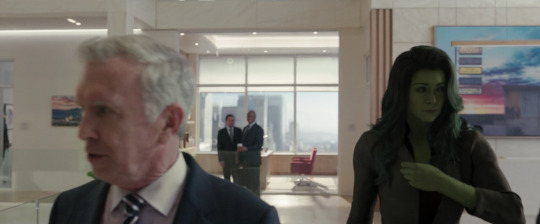
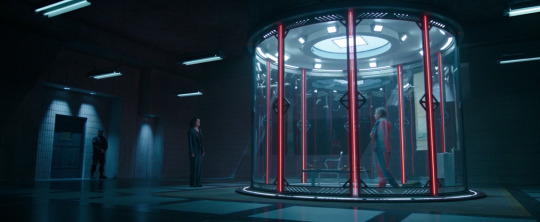
Jen gets fired from her job.
She-Hulk gets new job.
She-Hulk meets new client.
And that's it. Everything else is in the episode is set-up for these two/three plot points. And it takes them about 20 minutes.
For comparison, an episode of Community will use that same amount of time to tell you a whole story with a beginning, middle and end and two subplots.
Whereas the second She-Hulk episode seemingly ended in the middle of the second act.
And that's so typical of a lot of Disney Plus shows. There will be scenes that are literally just filler (I'm using the term very loosely), there to pad the runtime because not much is actually happening in the episode.
Like, in Loki.
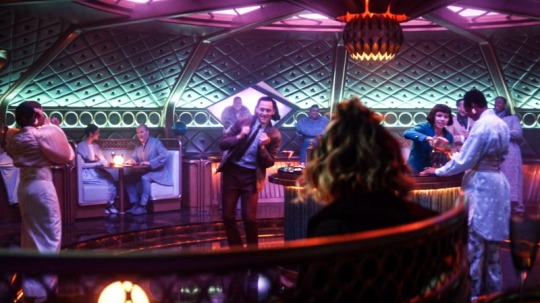
Episode #3, they land on a doomed planed, they get off the doomed planet. Filler shenaningans on a train.
Episode #4, they're captured, they escape capture. Filler scenes with Sif slapping Loki.
Episode #5, they land in weird dimension, get out of weird dimension. Filler scenes with variants.
Episode #6, they meet big bad, listen to big bad, kill big bad. Filler scenes with Owen Wilson & big bad's overall weird.
Or Book of Boba Fett,
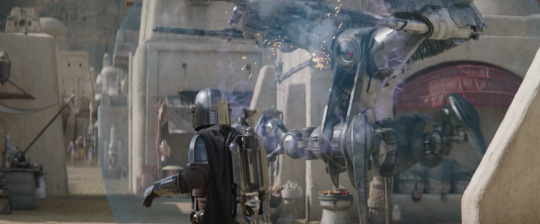
Episode #1, Boba heads to town and gets attacked.
Episode #2, Boba heads to town, sees mayor, meets Hutt rivals.
Episode #3, Boba heads to town, recruits goons, survives assassination, makes peace with Hutts, heads to town again, finds out Pikes are his actual rivals.
Then Episode #4, is a whole flashback that ends with a meeting where characters we already knew hated Boba say they won't help Boba, shocker.
Episode #5 and Episode #6 focus on Din, A WHOLE DIFFERENT CHARACTER...!
Episode #7, they fight off invading Pike forces, Boba kills his old rival/mentor, cementing his already-claimed position as crimelord. Filler scenes where Din needs to fight big robot + a whole bunch of other minor characters going pew pew.
Note:
The first three episodes are intercut with flashbacks that pad the runtime. Episode #3 is the one where most stuff happens, and even then, it's repetitive and the length needs to be filled with the slowest speeder chase ever.
Keep in mind, I didn't necessarily hate the show, you can read meta I wrote about it here and here for more detailed opinions.
Even Obi-Wan Kenobi,
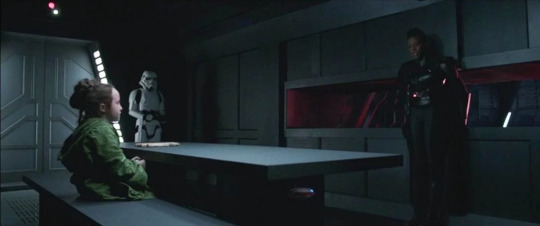
Episode #1, Leia gets kidnapped and Obi-Wan hesitates to leave his post and go rescue her, until he finally does.
Standard first act. Great.
Episode #2, he frees Leia.
Episode #3, they're about to escape but Vader shows up and Leia is kidnapped again.
Episode #4, he frees Leia.
Episode #5, they're about to escape but Empire shows up and Obi-Wan needs to help the rebels survive. He prepares a trap for Vader using Reva, and uses his past knowledge of Vader's personality to escape with the rebels.
Episode #6, Obi-Wan fights Vader to let the rebels get to safety, and defeats him, coming to terms Anakin is truly dead but there is still hope.
Note:
Aside from the repeating beat where Obi-Wan saves Leia twice, most of the time-padding is done through a B-plot featuring Reva... but it barely ever directly impacts the A-plot.
This detraction is less problematic than the other examples given further up, imo, and I have no problems with her storyline, in fact it parallels Anakin's beautifully as I write here. They're able to tie it back to Obi-Wan at the end, but throughout it's like I was watching a parallel story.
Now, bear in mind...
... Having those filler scenes isn't bad. By themselves, I like most of them. It's Star Wars and Marvel. I'll always love whatever they put in front of me, especially if it's got Obi-Wan.
And, hey we get character development in them! (although, ideally, the audience should see the character develop throughout a plot rather than being told about it through flashbacks or exposition-on-train scenes)
But it's just that... those scenes don't really impact the plot. And if the plot is basic or even paper-thin, that's when we have a problem because it makes for an unsatisfying viewing experience, as nothing substantial really happened.
And this is nothing more than a structural problem. These episodes aren't being treated as episodes in a series, they're "parts of a 10-hour movie".
Which brings me to the below quote by Erik Kripke (heated though it may be), which sums up my issue.
“The downside of streaming is that a lot of filmmakers who work in streaming didn’t necessarily come out of that network grind. They’re more comfortable with the idea that they could give you 10 hours where nothing happens until the eighth hour. That drives me f—ing nuts, personally. As a network guy who had to get you people interested for 22 f—ing hours a year, I didn’t get the benefit of, ‘Oh, just hang in there and don’t worry. The critics will tell you that by Episode 8, shit really hits the fan.’ Or anyone who says, ‘Well, what I’m really making is a 10-hour movie.’ F—k you! No you’re not! Make a TV show. You’re in the entertainment business.”
So bottom line: before streaming came along, whether it's a
serial TV show (usually hourlongs, each episode builds off of previous episodes, and sets up future episodes), an
episodic TV show (whose stories unfold in simply one episode, like half-hour sitcoms, or a medical/legal/police hourlong procedural shows) or a
hybrid TV show (incorporate length and overall season and episode structure of serialized shows, with the week-to-week component of episodic shows; think Scandal or Supernatural or Lucifer or The Blacklist or anything from The CW, wherein there's a monster/case-of-the-week component but there's also an overall arc that's tackled every episode, and an overarching villain every new season),
the episodes are structured with a teaser, beginning, middle and end, with a cliff-hanger at the end.
This is usually done using a 5-act structure (though there is some variety; some shows will be structured with a "teaser and 4 acts").
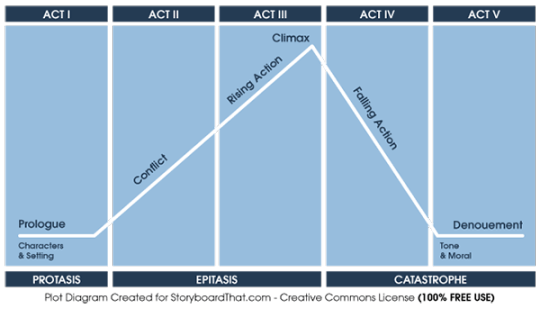
Prologue, Conflict sets in, Rising Action, Climax, Falling Action, Resolution. Six storytelling plot elements, classic.
And even with a 3-act structure, like in half-hour serials like Silicon Valley or sitcoms, you still have the same idea.

"Cat gets stuck up a tree, you throw pebbles at it, cat climbs down from the tree".
Basic stuff. It's not a dogmatic must, but that's pretty much it.
And in a serial, all these individual episodes, put together, form a season arc with its own beginning, middle and end, with its own rising action, climax, falling action and a cliffhanger.
This structure makes for a satisfying viewing experience.
Then streaming came along and this became less of a hard rule and more of a guideline. After all:
You don't have commercial breaks anymore, you don't have to split the episode up it into acts, if you don't want to. If you read a script from The Crown, for instance, there are no act breaks.
Also, with streaming comes binge-watching: you're not just watching one episode a week now, right?
The episodes are released all at once.
So people are consuming the series differently. They're watching the series like it's a really long movie. So the pressure of sticking to the above-listed formats isn't as strong, because the next episode is right around the corner.
But it's worth pointing out that Netflix released a document a short while ago for creators to know what to include in their pitches to them (you can download it here).
This includes an example of a season map.

Okay, so same thing. Rising action, climax, falling action. Great.
And the PDF also shows an example of how to structure your episodes, using Dan Harmon's story circle (Dan Harmon created Community and co-created Rick & Morty):
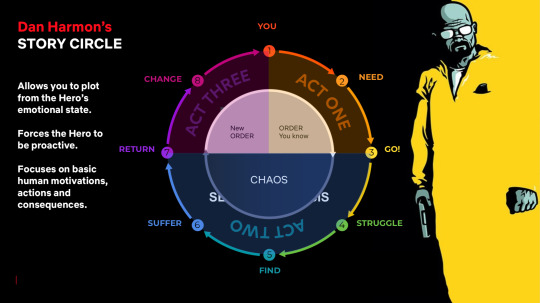
Even with the story circle, which follows a 3-act structure, there's a self-contained element to the stories Netflix tells; beginning, middle and an end, the characters have an arc.
And while Harmon himself uses it for half-hour sitcom episodes, the diagram shows that even serialized hourlongs adhere to this.
So where's the problem?
The problem is that with many (not all) Disney Plus shows, this structure has been completely abandoned... but the shows aren't even being released all at once!
And this is... not ideal :D
Because the episodes don't follow any particular structure, so by and large you don't have the satisfaction of having seen a full episode with a start, middle and ending.
You've just seen a cluster of scenes, wrangled around one or two plot points, with a cliff-hanger.
"Stuff happened and now the episode is over."
And when structure is thrown out the window, that's where the pacing issues come in, right?
Scenes that should only be 15-20 minutes tops are padded so they run for 30. Scenes that should only be 3 minutes instead last 10.
The episodes don't stick to any particular length. They seem to be paced like hourlongs but then they have the length of half-hours every other time?
Which wouldn't be an issue if the whole show was released at once and you could watch the next episode right away.
Proof: people who binge-watched Obi-Wan Kenobi or rewatched it all from the top or watched a "feature cut" all LOVED it.
So it's clearly not the content, it's the pacing, which wouldn't be problematic if you're watching this like a 10-hour movie.
But the episodes are released weekly!
It's like watching a movie, and after, like, 7 scenes... your parent turns the TV off "okay, you'll watch the rest next week" when you were just about to get to the good part.

*CLICK* turned off.
So the next week you're watching the good part, but you don't have those 7 scenes leading up to it, you're literally just starting there, so it's not as good.
Then right after the good part, one scene later, TV is turned off again.
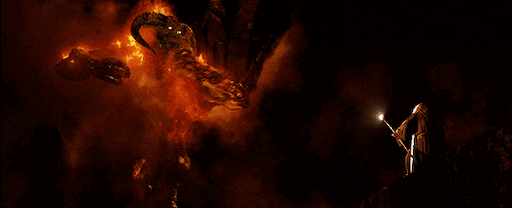
*CLICK* off.
And you're back the next week opening on them licking their wounds.
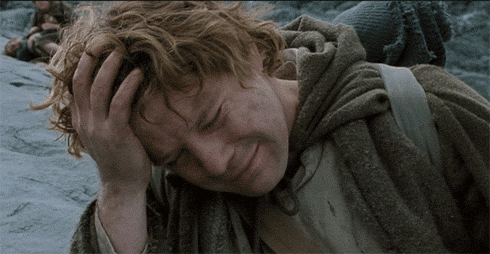
It's not just frustrating, it lessens the impact of the movie. It's "keep watching these scene groupings and eventually it'll add up to a sort-of complete story if you wait a month."
That's not an enjoyable viewing experience.
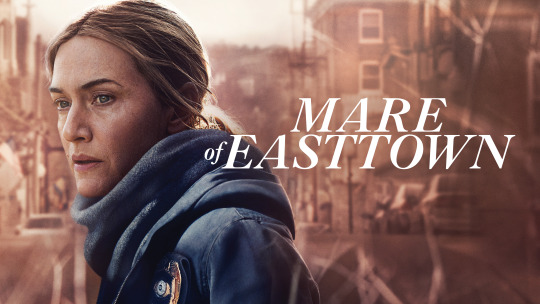

For comparison, Mare of Easttown on Amazon was also a limited serial with a weekly release, like Disney Plus shows. But in those episodes there's a clear teaser, beginning, middle, resolution and a cliff-hanger. Only Murders in the Building on Hulu isn't limited, but it is serialized and released weekly: same deal structure-wise.
THOSE were enjoyable viewing experiences.
So at this point, like, either they:
Keep the "10-hour movie" formula and release the show all at once, so it can be binge-watched.
Format the episodes more like network ones and keep the weekly releases, thus keeping it satisfying to consume.
Because this current release strategy isn't working, if the number of people complaining about "pacing" is indicative of anything.
Of course, they'll do neither, because it totally IS working, isn't it?
After all, the goal isn't telling a story properly or making an enjoyable viewing experience, it's getting more subscriptions, more money. People keep tuning in every week? Yes? Cool. Let's settle for that.
On the contrary, more streaming services are now adopting the weekly release over the all-at-once (but again, they're structuring the shows well, so it's not a problem).
But I'm hopeful.
A friend, yesterday, told me Miss Marvel doesn't fall in this pattern, so hey, Imma watch it, while also hoping that Andor is gonna go about it better too. And I've got a good feeling about The Mandalorian Season 3. Fingers crossed!
Edit:
Saw the first three episodes of Andor... same issue.
It wasn't three episodes, it was ONE episode, split into three. Like, on the one hand I really, REALLY liked these three episodes (and I am usually "meh" by default on any SW content that doesn't involve a lightsaber), the acting is magnificent, it's seriously all great TOP quality stuff… but it’s paced like an hourlong episode (which is cool) but has only 30 mins length (which is also not bad if all episodes were released at once) and you have to wait a week to see the next episode.
Like, don't get me wrong, the pacing is GREAT, in theory. It’s just that it should go hand-in-hand with either/both a longer length, different structure and an all-at-once release.
#I think I should point out that I'm not blaming the writers of these shows#i get the feeling this way of structuring shows has been imposed on them#long post#meta#disney plus#star wars#marvel#screenwriting#filmmaking
228 notes
·
View notes
Photo



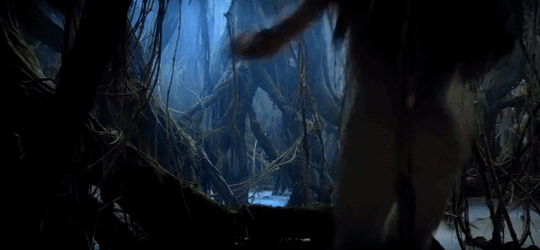
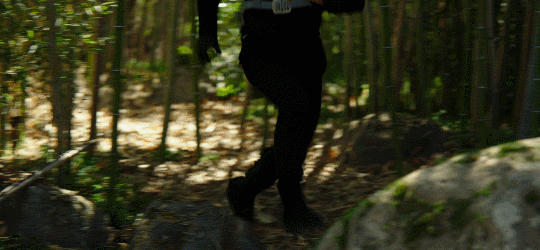


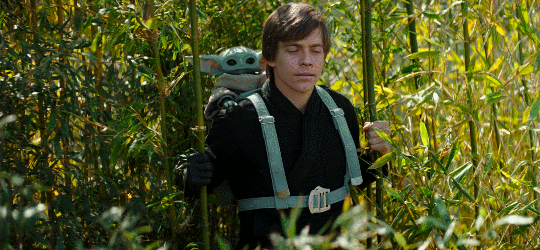
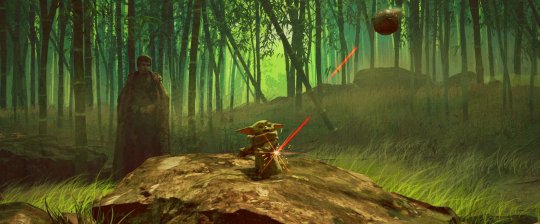
So, Favreau came out today and said that Grogu was training with Luke for two years and every response I’ve seen has been “the fuck he did not” because it absolutely is not conveyed within the episode and doesn’t feel like two years and I am baffled at this choice because okay look.
This is apparently two years into their time together, I can understand some awkwardness still, not all people get along and it’s clear that Grogu’s heart isn’t really in this.
But what you’re telling me is that it took Luke Skywalker two years to bring up Yoda’s name? It took Luke two years to break out the training remote to help Grogu?
You’re telling me that Grogu, at the beginning of the episode, was already two years into his training with Luke and had barely made much progress, until just now?
Further, what gets me is: The things Luke uses to teach Grogu in this episode are all things that are from the beginning of his training. The blaster remote that Obi-Wan used on him was the very, very first thing he ever used to open himself up to the Force and using his senses through it.
The time he spent on Dagobah may have been up to a couple of months, but the comment Luke repeats from Yoda, “Size matters not.” is something that was a foundation of his understanding of the Force, not something you break out mid-way through training someone.
Setting aside that there’s no indication of that kind of passage of time in the episode itself, it’s a baffling choice because all of this feels like training Luke would start with, like what have they been DOING for those two years, if not starting with training remotes or Luke talking about Yoda? Luke himself didn’t start with two years of nothing but meditation, I guess you could bend over backwards to make the case that Grogu was so traumatized, Luke felt he had to back up even further than his own starting point, and do two years of meditation before Grogu was ready to move on to where Luke started, but none of that is conveyed in the episode.
417 notes
·
View notes
Text
tagged by @alfalfairy, thanks! but get ready for the most boring answers ever
tag up to 9 people you want to get to know better!
favorite color - it varies. adhd affects everything. but the most consistent is a very specific shade of blue that’s somewhere in the turquoise/teal range. but my wardrobe is still mostly black.
currently reading - ehhh, I don’t do much reading of actual books. unless its nonfiction about a current hyperfixation topic. but I’m not doing that right now so, it’s just fanfic and long ass meta essays for me thanks. (I’m a very visual person and I’ve always had trouble connecting with fiction purely through written works)
last song - probably some 10 hour soothing Skyrim music compilation on youtube. because I’m an anxious nocturnal fuck and Skyrim has an effect on me
last series - The Mandalorian. really good. pissed that I also had to watch the nowhere near as good Book of Boba Fett to get the whole story. so I guess that was actually the last thing I watched. the first half of that show was so dull I completely forgot lol.
last movie - Black Widow I think. mom was watching it when I had to stay with her last month. middle of the road, like most recent Marvel movies. I don’t tend to watch a lot of new stuff frequently. anything has the potential to be a new hyperfixation and sometimes I’m good with my current one.
sweet / savory / spicy - spicy
currently working on - uh, does my Animal Crossing island count? honestly I could’ve listed like 10 ongoing projects a few years ago, but I just don’t have the energy anymore. I swear I used to do things. oh wait! I’m learning spanish, and it’s going pretty well actually. like beginner well. still. that counts.
tagging @thagandizzle, @syb3rstrife, @sailorbryant and that’s about it. this has already made the rounds on my dash. don’t wanna double tag anyone
#this thing really needs a video game question#i'm really slow about watching shit#and i never read books#but i play a lot of games#tagged
3 notes
·
View notes
Text

An Anon asked: Meta + Sintas [For Boba? You seem to use his Legends canon]

Nonny, I want to give you a lil smooch, because this is such a thoughtful lil thing to send me, and you're right, I do mainly use Boba's Legends canon! Partly because I haven't actually seen Book of Boba Fett as yet (...I'm working on it) and partly because I actually think it's an important and meaningful storyline that gets misinterpreted (willfully or otherwise) by folks a lot.
Boba loved Sintas. Wholly, unconditionally. After he got out of prison, she was another youngster in the outlaw scene, and she didn't want to be there any more than he did. She said she wanted to get out of the life, and Boba had never really wanted to be in it. She said she wanted to be normal, to have a family like they never had. And Boba agreed.
There were red flags he probably should have noted, but he was only 14 when they started sort-of seeing one another. It didn't seem weird to him that she made their encounters more about her than him. He didn't notice how she corrected him frequently, shaping their shared future into her dream rather than a collaboration. But he didn't realize that those weren't healthy. She stayed, she said she loved him, and she asked him to take her away from their life, to build a new one with her, and he did.
Boba got a real, stand-up job as a Journeyman Protector. He married her. He was so excited to be a father, to raise Ailyn. To be a normal person, to have the life his father couldn't have or give him. To give his daughter that life. He loved his wife, and he wanted her to have that life too. Normal, quiet, peaceful.
Sintas didn't love their life that much. She loved the idea of being a family woman, but she resented being at home on the farm while Boba worked. She left him to care for their daughter when he got home, and they fought frequently about that and many other things. They fought over everything, really, but he thought they could work things out. He always thought they could work things out.
Boba would have done anything for his family, and he did. He killed a man for his wife, and rather than seeing it as the love he bore her, the urge to avenge her honor and protect her and their daughter, Sintas accused him of ruining their lives. She refused to join him off of Concord Dawn after his exile, instead staying where he could never go back, effectively cutting him off from his child. She told him she never wanted to see him again.
He grew to resent her. He resented being denied his daughter, being told that he could never see her, that he was the reason Ailyn would have no father. He resented Sintas acting as if he abandoned them, and he resented her becoming a bounty hunter again after she sent him away, when she could have done any job to raise their daughter. He resented her making everything his fault.
He also believed everything she said. He never remarried. He never tried for another family. He believed he did ruin their life, but he was barely more than a child himself. He felt responsible.
And he still loved her.
Boba held onto the flame of that love for decades. Loved her from afar, with pain, even after learning she turned their daughter so far against him that she wanted him dead. Still loved her even after learning she left their daughter alone in the galaxy.
Boba Fett died still loving the woman he fell in love with at the age of 14. Despite the insecurities she caused in him, the pain. Despite the wounds she inflicted that never ever stopped bleeding. He never stopped loving her. He never thought himself worthy of anyone's love ever again, but he still loved her, even into his sixties, seventies. Even after she was freed from carbonite, a fraction of his age, he gave her a culturally significant gemstone necklace to let her 'catch up' with his memories (Sintas is a kiffar with psychommetry) from the time after they broke up. He still loved her, despite it all. Wanted her to catch up with him, opened his soul to her.
Theirs was a horrid, toxic love, traumatized teenager and pre-teen romance that should never have gotten past a crush, but for his part, Boba loved Sintas truly and deeply.
(Anyway, if you want a good overview of the Vibes of Boba and Sintas' relationship, these songs, in order:
Take Me To Church
Abracadabra
The Dreamin'
That's All
My Life
Hope you enjoy the suffering!)

#rel: The Dreaming (Boba & Sintas)#Headcanons: Boba#Metas: Boba#In The Words of others (Answered OOC)#(Nonny I LOVE you for this ask because I have Emotions about Boba & Sintas)#tw: rape#tw: emotional abuse#(Just in case)
1 note
·
View note
Note
Yeah maybe white people don’t like the Tusken raiders because there are not enough sex scenes with them or they don’t feel like the Tusken raiders are sexualized enough for their racist sexual fantasies.

20 notes
·
View notes
Text
Hi it’s Saturday and I’m suddenly really struck by the final showdown in the Mandalorian Season 2 when the Dark troopers return to the ship and just how tired and sad Grogu is during that scene
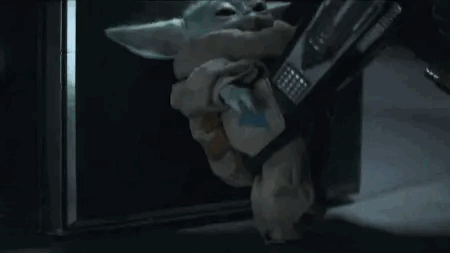
when Din tells him he will get him out of there and he just sinks against the console, drained and hopeless
because even if he can’t remember just then, this has happened before, exactly like this
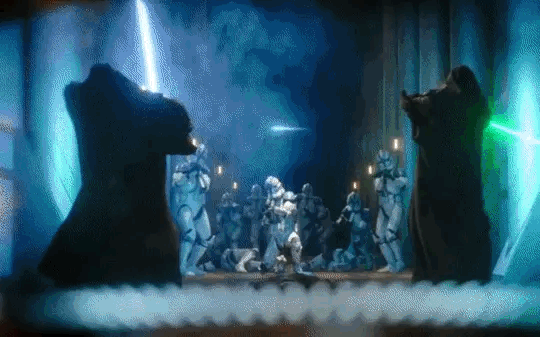
people he cared about standing before him, protecting him, and falling against the assaulters.
And then---just the way he lifts his little ears then when the x wing arrives, when he feels Luke close in on them and watches him on the screens, easily cutting down the adversaries that would have been sure to kill everyone in that room-- it just hits even harder.
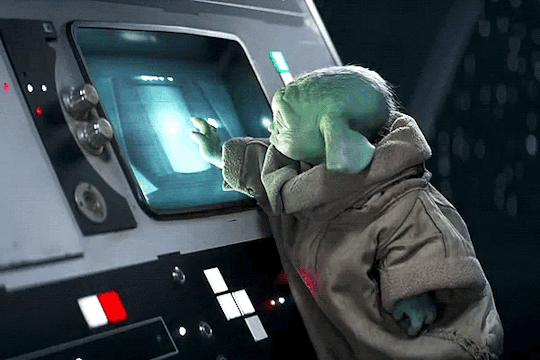
It was an impossible situation, one that Grogu has lived and experienced and seen the results of, and in comes Luke and turns it all around. Saves them all. Saves Grogu. Saves his Din Djarin, who would have died for him, who has been as his father and who he loves more than anyone. Luke gives him hope and I’m devastated.
The season finale and "Open the door" has such a grip on me it's been a wholedamnyear
#the Mandalorian#the book of boba fett#THE PARALLELS DUDEs#Grogu#Din Djarin#The Mandalorian 2x08#chapter 16: the rescue#luke skywalker#I still cry bc of this soundtrack#THERE IS JUST SO MUCH HOPE#sw meta#i know it's hard to believe guys but I actually love this scene for reasons completely unrelated to dinluke
497 notes
·
View notes